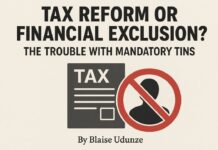As the curtains fell on the 2nd Nigeria Spokespersons Summit held in Abuja from April 15–17, 2025, one thing became unequivocally clear: Nigeria’s communication landscape is not only evolving—it is undergoing a transformative shift. The summit, organized by the Nigerian Institute of Public Relations (NIPR), drew leading voices from government, media, academia, and the private sector, all converging to discuss the theme: “‘Integrity and Evolving Roles of Spokespersons in Leadership Communication.’.”
The event was more than a gathering—it was a renaissance.
A call to action. A strategic reawakening for those of us who serve at the frontlines of messaging, perception shaping, and public advocacy.
Unveiling a New Era of Ethical Communication: Perhaps the most symbolic moment was the unveiling of the Spokespersons’ Charter and Code of Ethics by the Speaker of the House of Representatives, Rt. Hon. Tajudeen Abbas, PhD, GCON, FNIPR.
This singular act underscores a national urgency for a professional, disciplined, and values-driven communication culture. For PR practitioners and spokespersons, it offers a foundational framework to guide conduct in an era where misinformation spreads faster than truth.
As a media and communication expert, this landmark code inspires a renewed commitment to transparency, accountability, and professionalism. It sets the tone for a future where ethical clarity must precede eloquence, and where the communicator’s credibility is his or her most valuable currency.
Strategic Storytelling: From Noise to Narrative: One of the summit’s resounding lessons was the power of strategic storytelling. In her rich presentation, Dr. Nkechi Ali-Balogun, MD of NECCI Consulting, emphasized that storytelling is not merely a communication tool—it is the soul of brand identity.
Storytelling, when done with intent and authenticity, becomes a transformative force that humanizes institutions, mobilizes publics, and influences social behavior.
This insight signals a shift from broadcasting to connecting. From press releases to purpose-driven narratives. As PR professionals, we must now communicate not just what we do, but why we do it—and in ways that resonate deeply with our audiences.
Policy Literacy and Economic Awareness in PR Practice: Prof. Taiwo Oyedele’s keynote address on Nigeria’s economic outlook and tax reforms was both enlightening and timely. In today’s policy-sensitive environment, PR practitioners must be more than wordsmiths—they must become policy interpreters and strategic advisors.
Understanding economic policies and fiscal reforms allows us to craft messages that are not only accurate but also instructive and confidence-building. We can no longer afford to react from the sidelines; we must anticipate, interpret, and lead.
Profit Meets Purpose: Rebranding CSR Communication: Chief Adetokunboh Modupe’s powerful insights on aligning profit with social responsibility challenge the age-old perception of CSR as a checkbox activity.
He advocated for a public relations model where reputation is built through authentic community impact.
This reframing of CSR speaks to the need for Nigerian brands to move from tokenism to transformation. Communication strategies must begin to highlight not only shareholder returns but stakeholder value—building trust through transparency and meaningful action.
A Conversation Across Generations of Communicators: The Information Ministerial Clinic brought together some of Nigeria’s most respected figures in information management—Mohammed Idris, Alh. Lai Mohammed, Frank Nweke II, Prof. Jerry Gana, Chief John Nnia Nwodo, HE Labaran Maku—moderated by Chief Yomi Badejo-Okusanya and Tosin Dokpesi. Their collective wisdom revealed a central truth: that while platforms may change, the essence of communication remains people-centric.
From these veterans, we learned the value of institutional memory, historical context, and emotional intelligence in public communication. It was a humbling reminder that technology should serve strategy, not replace it.
The Way Forward: From Summits to Systems
While the summit was rich in dialogue and knowledge-sharing, its real power lies in how we translate these insights into sustainable systems and daily practice.
As practitioners, the way forward is clear:
Embed ethics in every communication strategy, ensuring messages align with truth and public interest.
Invest in continuous learning, especially in data analytics, policy analysis, crisis communication, and digital storytelling.
Strengthen collaboration between government, media, and private institutions to ensure unified and informed public messaging.
Mentor the next generation of communicators, grounding them in both the art and science of modern public relations.
Champion inclusive narratives that reflect the diversity, aspirations, and resilience of the Nigerian people.
Conclusion
The 2nd Nigeria Spokespersons Summit was not merely a professional gathering—it was a wake-up call and a blueprint.
As communication architects, we are entrusted with the power to shape perception, inspire change, and uphold the public trust.
In this ever-evolving communication ecosystem, we must remain grounded in values, agile in approach, and visionary in execution. For in the words of a Nigerian proverb, “The story that is not told dies with the storyteller.” Now, more than ever, Nigeria needs its communicators to speak truth, tell better stories, and build a more informed society.
Compiled By
Ezenwa Opara, ANIPR, MCIPR
Public Relations & Media Communication Expert | Writer | Strategist | Advocate for Ethical Storytelling














